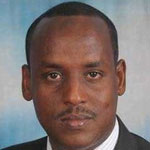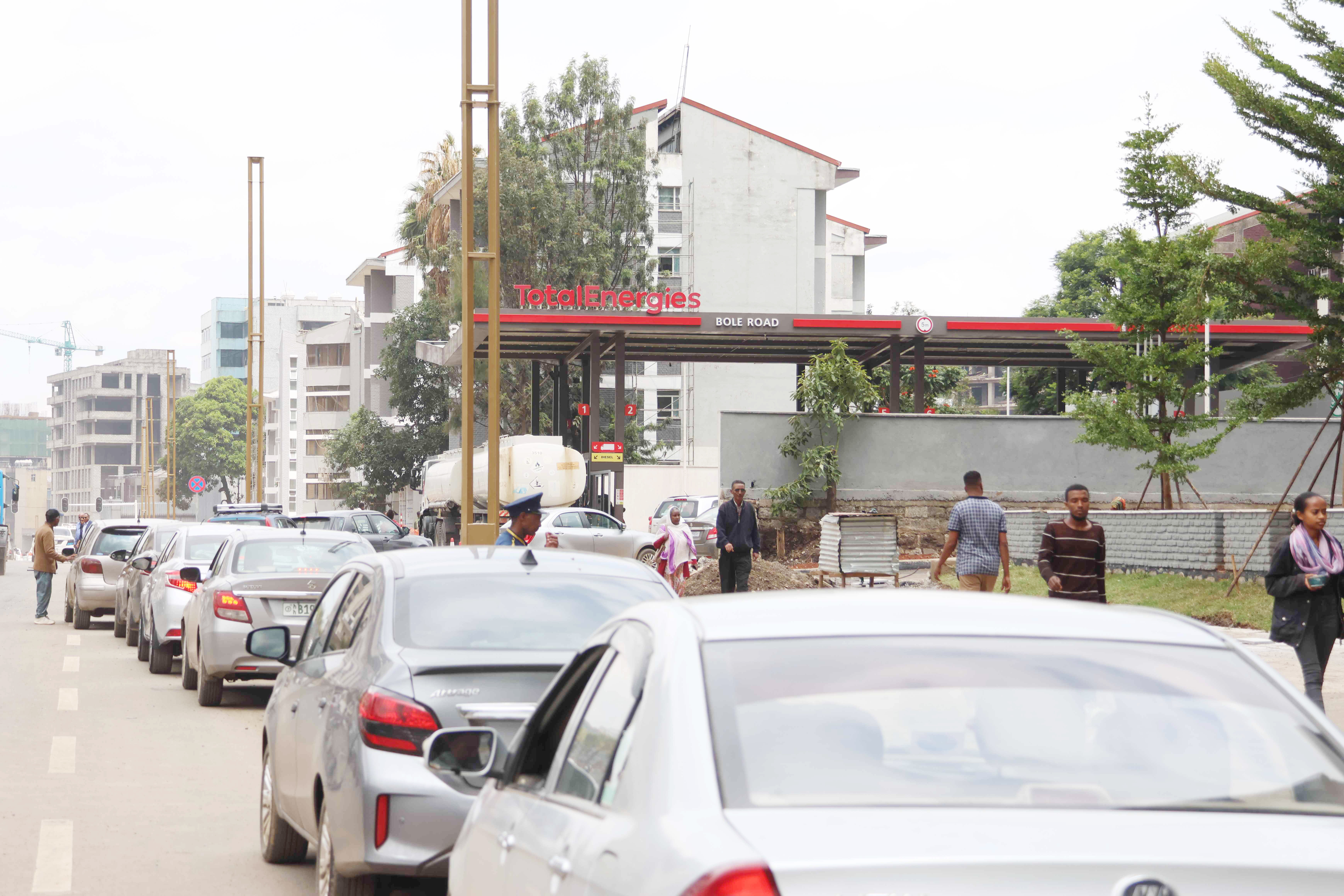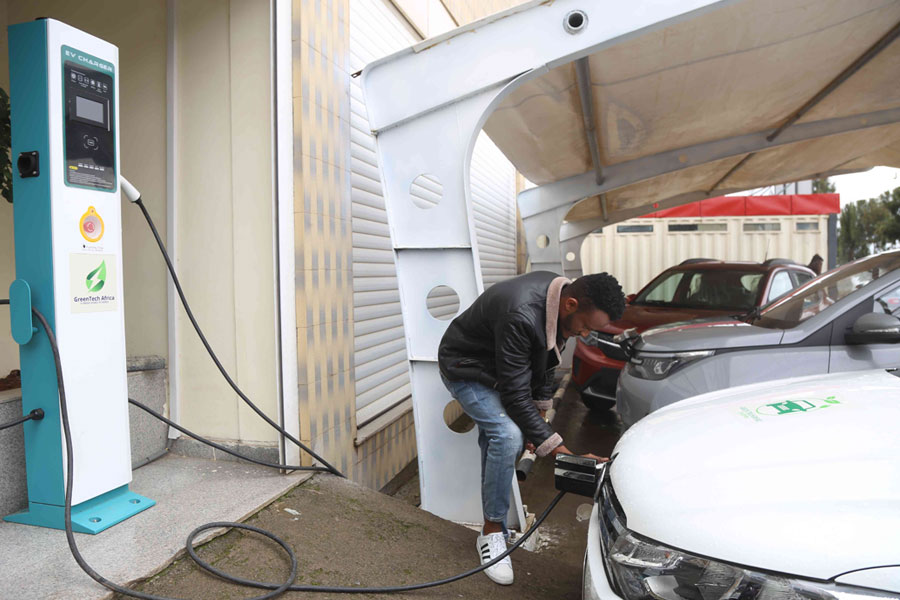
Agenda | Jun 27,2020
Jul 9 , 2022
By Mohamed Adow
Having been thrust to the front lines of a climate crisis we did not cause, Africans have long urged rich countries to wean themselves off fossil fuels and slash their greenhouse-gas emissions. But, instead of heeding our calls, the rich have remained addicted to oil and gas – much of which, in Europe’s case, has come from Russia. Now they are taking this insult a step further: in their drive to end their dependence on Russian energy, the world’s wealthiest economies are turning to Africa.
Over the past few months, Italian Prime Minister Mario Draghi has been working tirelessly to secure new gas deals with Algeria, Angola, Egypt, and the Republic of the Congo. The closing of every single deal – the terms of which remain opaque – was attended by the CEO of Eni, the largest fossil-fuel company active on the African continent.
In other words, Draghi, a public servant, has been using government resources to deliver overwhelmingly private gains to an Italian company. Similarly, in May, German Chancellor Olaf Scholz started his first official trip to Africa in Senegal, where he announced plans to pursue energy projects “intensively.” Talks on gas extraction and liquefied natural gas (LNG) production have already begun, with Scholz expressing willingness to offer technical investments in power-plant infrastructure in Senegal.
It is not only those seeking to import the continent’s fossil-fuel resources who believe that Africa should extract more of them. Mary Robinson, a former president of Ireland and United Nations high commissioner for human rights, recently argued that Africa should be exploiting its vast natural-gas reserves. Robinson believes this would be just: by boosting energy access and spurring development on the continent, natural-gas extraction would help the hundreds of millions of Africans whom the fossil-fuel system has so far failed.
But, ultimately, what she is advocating is not much different from Draghi and Scholz’s strategy: use European taxpayers’ money to help massive corporations expand gas exploration and exploitation on African lands.
Robinson envisions the gas (and profits) going to Africans, but it is far more likely to be sent to Europe. As the Ugandan climate activist Vanessa Nakate recently pointed out, fossil-fuel development is nothing new for Africa, and it has long failed to reduce energy poverty or bring prosperity. In fact, African economies that depend on fossil-fuel exports suffer slower rates of economic growth – sometimes up to three times slower – than those with diversified economies.
In Mozambique, foreign companies, led by Eni and TotalEnergies, have invested nearly 30 billion dollars in developing offshore natural-gas reserves and LNG capacity. Yet 70pc of people still live without access to electricity.
It is unacceptable, not to mention unjust, that Germany and Italy are pushing African countries to pour their limited financial reserves into developing a fossil-fuel extraction and export industry for European consumers, especially with European demand set to plummet in a matter of years, as investments in renewables come online.
Such investments are an integral part of the European Union’s plan for ending its dependence on Russian energy. The EU now aims to increase renewables’ share of its energy mix to 40pc – or even 45pc – by 2030, and overall gas demand is expected to fall 30pc by 2030. Moreover, Germany and Italy both plan to reach net-zero emissions within the next 30 years. The EU’s new Carbon Border Adjustment Mechanism will further accelerate the transition, as it penalizes countries stuck on fossil fuels.
Oil and gas companies are well aware of the impact this shift will have on their bottom lines. For them, the goal of expanding output in Africa amounts to a cynical effort to squeeze every drop of profit out of their declining industry while they still can. The fact that they will leave African countries holding the stranded assets is just as immaterial to them as their contributions to climate change have been.
Robinson is right about one thing: Africans need access to energy to enjoy lives of dignity. But that is no reason to invest in a system that has already failed – precisely the system from which Europe is trying to wean itself.
Instead, Africa must invest in distributed renewable-energy systems, which would bring true prosperity and security to our continent, rather than poisoning our food, polluting our rivers, and choking our lungs to profit remote shareholders. African climate-justice champions are very clear that we want to avoid locking in planetary catastrophe as much as we want to deliver universal energy access.
Unfortunately, African leaders do not seem to share our commitment to either goal. Rather than using their time with Western leaders to demand support for the renewable-energy transition, Algerian President Abdelmadjid Tebboune and Egyptian President Abdel Fattah el-Sisi agreed to increase oil and gas production and exports to Europe. Senegalese President Macky Sall appears eager to join them, establishing Senegal as a fossil-fuel supplier for Europe.
During centuries of colonial rule, when European leaders told Africa to jump, we asked, “How high?” Now Germany and Italy are telling us to saddle ourselves with fossil-fuel infrastructure that will soon become a drag on our economies and propel us toward climate disaster.
We must respond with a firm no, and instead demand that countries like Germany and Italy, and leaders like Robinson, support us in the development and implementation of renewable-energy systems.
PUBLISHED ON
Jul 09,2022 [ VOL
23 , NO
1158]


Agenda | Jun 27,2020

Commentaries | Jul 22,2023

Commentaries | Jun 22,2024

Sponsored Contents | Mar 21,2022

Radar | Feb 16,2019

Viewpoints | Oct 12,2024

Commentaries | Oct 26,2024

Commentaries | Oct 15,2022

Fortune News | Jun 29,2024

Fortune News | Feb 25,2023

Photo Gallery | 174065 Views | May 06,2019

Photo Gallery | 164290 Views | Apr 26,2019

Photo Gallery | 154400 Views | Oct 06,2021

My Opinion | 136619 Views | Aug 14,2021
Editorial | Oct 11,2025

Dec 22 , 2024 . By TIZITA SHEWAFERAW
Charged with transforming colossal state-owned enterprises into modern and competitiv...

Aug 18 , 2024 . By AKSAH ITALO
Although predictable Yonas Zerihun's job in the ride-hailing service is not immune to...

Jul 28 , 2024 . By TIZITA SHEWAFERAW
Unhabitual, perhaps too many, Samuel Gebreyohannes, 38, used to occasionally enjoy a couple of beers at breakfast. However, he recently swit...

Jul 13 , 2024 . By AKSAH ITALO
Investors who rely on tractors, trucks, and field vehicles for commuting, transporting commodities, and f...

Oct 11 , 2025
Ladislas Farago, a roving Associated Press (AP) correspondent, arrived in Ethiopia in...

Oct 4 , 2025
Eyob Tekalegn (PhD) had been in the Governor's chair for only weeks when, on Septembe...

Sep 27 , 2025
Four years into an experiment with “shock therapy” in education, the national moo...

Sep 20 , 2025
Getachew Reda's return to the national stage was always going to stir attention. Once...

Oct 12 , 2025
Tomato prices in Addis Abeba have surged to unprecedented levels, with retail stands charging between 85 Br and 140 Br a kilo, nearly triple...

Oct 12 , 2025 . By BEZAWIT HULUAGER
A sweeping change in the vehicle licensing system has tilted the scales in favour of electric vehicle (EV...

Oct 12 , 2025 . By NAHOM AYELE
A simmering dispute between the legal profession and the federal government is nearing a breaking point,...

Oct 12 , 2025 . By NAHOM AYELE
A violent storm that ripped through the flower belt of Bishoftu (Debreziet), 45Km east of the capital, in...